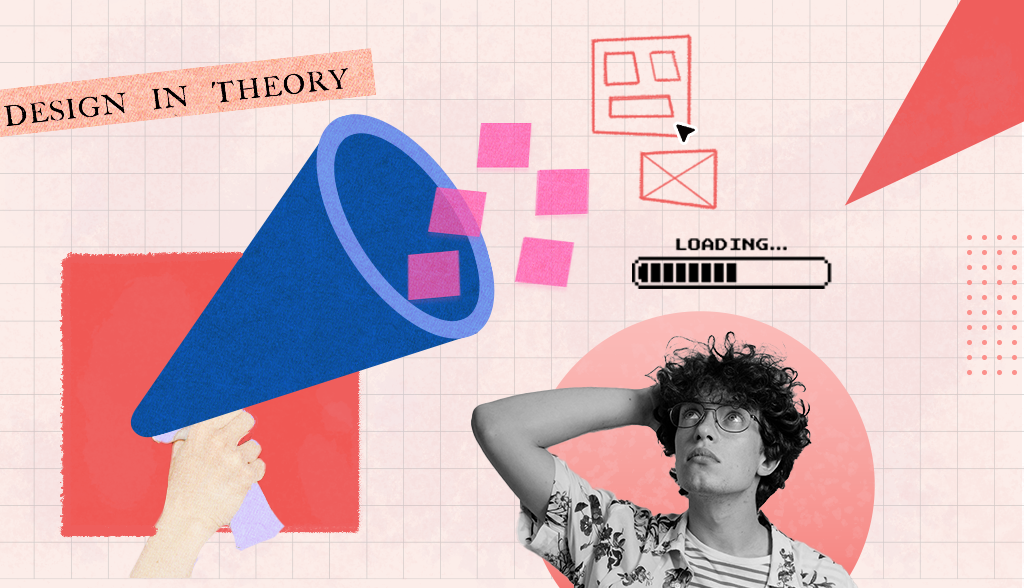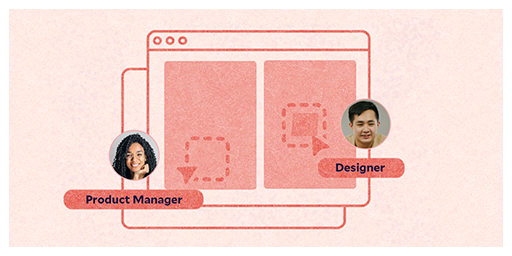You want to be a UX Designer? 7 myths you shouldn't believe
Are you thinking about becoming a UX Designer or Product Designer? Learn the common misconceptions people have about UX Design as a job.

So, you're thinking about becoming a UX or Product Designer? You might have seen those TikTok videos of designers leisurely hanging out on corporate campuses, sipping lattes, and whiteboarding creative ideas. It looks fun, right? Who wouldn't want that job?
But here's the thing about the UX Design career: a lot more is happening below the surface of a beautiful UI. Let's discuss some common myths I've heard from newcomers about working as a professional UX designer. Whether you're a recent graduate or considering a career, understanding these misconceptions can help you better decide your career choice.
UX Myth #1: Design is easy
It might seem your job is to push pixels and make things pretty, but there's so much more beneath the surface. I've seen this firsthand: 3-5 years in design, you suddenly realize how deep this rabbit hole goes.
In the product development lifecycle, designers are between product management and engineering, and that's no accident. We're not just making things look good; we're solving complex problems that require a deep understanding of users, business needs, and technical constraints.
Our main job is translating business requirements into design wireframes that engineers can build. A lot of thought goes into what that experience should be. When facing a challenging design problem beyond basic patterns, you start to appreciate the complexity of what we do.
UX Myth #2: You have to be technical.
Working in digital products doesn't mean you need to be a coding wizard. You need an understanding of technical constraints and how your product works. Your engineering partners help you understand what's possible - they're the experts in their domain, just like you're the expert in yours.
You can learn this over time, even if you've never worked in tech. It's all about being curious, asking questions, and being willing to learn. I've seen plenty of designers with zero technical backgrounds become incredibly effective by staying open-minded and collaborative.
UX Myth #3: You need a special background or degree
The UX field is full of people from wildly different backgrounds. Some folks come from architecture or art, but I've worked with amazing designers who studied history, English, and even museum studies.
What matters isn't where you started—your ability to think critically, solve problems, and, most importantly, your willingness to learn. Design is a skill you can develop with dedication and practice. I've seen people from all walks of life succeed in this field because they brought their unique perspectives and were committed to growing.
As a side note, if you're coming into the field from a different background, be prepared to learn a lot and find people you respect to mentor you.
UX Myth #4: Learning Figma or Adobe makes you a designer
Let me be honest—tools come and go in our field. They change often. A few years ago, Sketch was popular; before that, it was Omnigraffle. Knowing tools like Figma will make your life easier and help you collaborate better with your team, but that's not what makes you a designer.
You could sketch on paper or use MS Paint (please don't!) - what matters is your design thinking, problem-solving skills, and ability to craft solutions within constraints while still delivering results. These core skills are what you'll carry with you no matter what tool comes around the corner.

UX Myth #5: Design is a solo pursuit
People often miss the fact that design is collaborative. Your success as a designer isn't just about your creativity; it's about how well you can work with product managers, engineers, researchers, and other stakeholders.
Some of the best designs came from intense collaboration and iteration with the team. You're not an artist working alone in a studio solution. You're part of a product team solving problems together.
UX Myth #6: You'll be designing a lot
As a designer, you don't design as much as you think. Whenever I mentor people new to the field, they believe design is a creative endeavor and think it would be fun to design all day as a job.
Honestly, if you ask most designers who work at a company, they will tell you that they spend about 30% of their time designing; the rest is spent attending meetings or selling the design. Some designers might work in a creative agency-type setting where they're creating a lot, but in most corporate settings, not so much.
As I mentioned in the above myth, our job is solving problems. Sometimes, that means doing design-adjacent work to ensure our ideas are heard, and we solve the correct issues.
UX Myth #7: People will listen to you because you're a designer
Okay, so this seems like a trick. You are a professional designer- you have the title and everything. But it turns out that many people have opinions on the design. Because in Myth#1, it looks easy, other people on your team, like engineers, product managers, content designers, and researchers, sometimes try to drive the design how they think it should be.
Design isn't automatically respected like engineering or product management. I've been a designer for a long time in corporate contexts, and not much has changed in accepting design as a craft. Most of the time, the people you work with think we're just making things pretty.
So, your opinions in meetings or discussions might be overruled if people disagree with your design decisions or thoughts. Sometimes, they have a point, and sometimes, they don't.
Developing a strong rationale for why you designed something a certain way and communicating that rationale is crucial to your continued success as a designer. Otherwise, you might feel no one listens to you, and you're just an order taker for others on the team.
Most people don't realize this when entering the field. Everyone has an opinion on design. It's a collaborative profession, and it's important not to take it personally. Strive to communicate your design rationale and be open to other ideas, and you'll be fine.
Should I become a UX or Product Designer?
You should consider this career path if you love tech and problem-solving with people on teams. Many people are drawn to the field for many different aspects; some love perfecting design, shipping products, or improving customer lives through design.
Becoming a successful designer involves developing a problem-solving mindset, being endlessly curious about users and their needs, and the desire to keep learning and iterating. While the tools, techniques, and trends will change, these fundamentals stay constant.
Remember, every experienced designer started where you are now, questioning whether they should enter this field. The fact that you're even reading this shows you're already taking steps in the right direction. Keep pushing, stay curious, and don't let these myths hold you back.
Keep learning about the UX field
Check out this article on the difference between titles https://www.dianecronenwett.com/ux-jobs-user-experience-ux-vs-interaction-vs-ui-vs-product-designer/
Keep your portfolio ready for your UX job, read about common mistakes I've observed by reviewing hundreds of UX portfolios https://www.dianecronenwett.com/top-10-ux-portfolio-mistakes/
